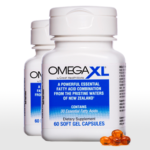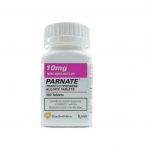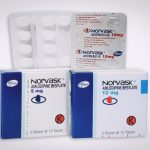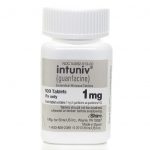Muconex: Uses, Benefits, Dosage, Side Effects

Muconex is a Turkish brand Of N-Acetylcysteine (NAC) a supplement form of cysteine. People take Muconex for various reasons, including to help treat medical issues ranging from psychological disorders to chronic lung conditions and to improve athletic performance.
Doctors believe that Muconex may stimulate the synthesis of glutathione, a compound that helps fight free radicals, unstable atoms that can cause inflammation and damage.
Muconex comes as an effervescent tab and syrup containing varying concentrations of N-Acetylcysteine.
- Muconex 600: Each tablet contains 600mg of N-Acetylcysteine
- Muconex 900: Each tablet contains 900mg of N-Acetylcysteine
- Muconex Forte 1200: Each tablet contains 1200mg of N-Acetylcysteine
- Muconex Syrup: Contains 200 mg of N-acetylcysteine per 5 ml
What are the uses and Benefits of Muconex?
Treating psychiatric conditions: Increasing the amount of NAC in the body may boost levels of some neurotransmitters, which may improve a person’s mental function. According to a 2018 review, Muconex may also help alleviate symptoms of various psychiatric conditions, including:
• bipolar disorder
• obsessive-compulsive disorder
• schizophrenia
While research into Muconex as a means of relieving psychiatric symptoms may be promising, most doctors would not recommend it as a sole treatment.
Instead, a person should rely upon evidence-based treatments, such as therapy and medication, when applicable. A doctor can provide advice about using Muconex to supplement traditional treatment.
Treating lung conditions and excess mucus: For people with chronic lung conditions, such as bronchitis or cystic fibrosis, some doctors recommend Muconex. That said, clinical trials of NAC as a treatment for lung disease have arrived at mixed results, according to the Memorial Sloan Kettering Cancer Center.
Improving insulin sensitivity in people with PCOS: Authors of a 2017 review suggested that taking Muconex may benefit people with polycystic ovary syndrome (PCOS). This syndrome can lead to insulin resistance and increases in blood sugar. The researchers reported evidence that Muconex may help reduce high blood sugar in people with PCOS. However, high-quality studies have not directly examined this. Muconex is no substitute for medications such as insulin or other methods of blood sugar control. It may only be helpful as a supplement.
Reducing the risk of preterm birth: According to the same 2017 review, Muconex supplements may help reduce the risk of preterm birth. Infections such as bacterial vaginosis may increase the risk of preterm delivery, and the body’s inflammatory response may further raise the risk. Because Muconex combats inflammation, the authors report it may help counter this risk factor for preterm birth.
The authors refer to a 2009 study in which taking 0.6 grams of NAC per day, as well as progesterone, after 16 weeks of pregnancy helped prevent preterm delivery in people with histories of preterm delivery and bacterial vaginosis.
Muconex may have a similar effect when a person takes it in combination with folic acid, the authors report.
However, as with any supplement, it is important to consult a doctor about its safety before taking Muconex during pregnancy.
Treating acetaminophen overdose: Doctors can use Muconex to treat acetaminophen overdoses.
Acetaminophen is an analgesic that can relieve aches, pains, and fever. If a person experiences an overdose of this drug, administering Muconex within 10 hours may help reduce the risk of associated liver damage.
Other potential benefits of Muconex
Several studies indicate that NAC may help with:
- nicotine dependence
- gambling addiction
- pathological nail biting or skin picking
- alcohol use disorder addiction
In addition, recent research has shown that Muconex may help suppress SARS-CoV-2, the virus that causes COVID-19. In particular, it may help reduce a patient’s need for mechanical ventilation, as well as mortality. However, there is currently limited evidence for these effects.
Muconex is available over the counter in pharmacies and health stores. The Food and Drug Administration (FDA) is currently reviewing whether dietary supplements should continue to contain NAC since it has already approved the substance as a drug.
According to the FDA, using N-acetyl cysteine in supplements is illegal because it is an approved drug. Supplement products should not be used in place of prescription products.
Muconex Dosage
Read all directions on the product package before taking this medication. If your doctor has prescribed this medication, read the Medication Guide provided by your pharmacist before you start taking Muconex. If you have any questions, ask your doctor or pharmacist.
The accepted daily supplement recommendation is 600–1,800 mg of NAC taken preferably in the morning. Your doctor will determine how long to treat you with NAC. Do not stop taking this medicine until your doctor tells you to.
If you vomit within 1 hour after taking Muconex, you may need to take another dose.
What happens if I miss a dose of Muconex?
Take the medicine as soon as you can, but skip the missed dose if it is almost time for your next dose. Do not take two doses at one time.
What happens if I overdose on Muconex?
Seek emergency medical attention or call the Poison Help line at 1-800-222-1222.
What should I avoid while taking Muconex?
Follow your doctor’s instructions about any restrictions on food, beverages, or activity.
What are the side effects of Muconex?
Common side effects of Muconex include:
• inflammation of the mouth,
• nausea,
• vomiting,
• fever,
• runny nose,
• drowsiness,
• clamminess,
• chest tightness,
• coughing,
• wheezing, or
• shortness of breath.
Serious side effects of Muconex may include:
• chest tightness,
• bronchoconstriction, and
• bleeding.
This is not a complete list of side effects and others may occur. Call your doctor for medical advice about side effects. You may report side effects to FDA at 1-800-FDA-1088.
What other drugs will affect Muconex?
Other drugs may affect NAC, including prescription and over-the-counter medicines, vitamins, and herbal products. Tell your doctor about all your current medicines and any medicine you start or stop using.





